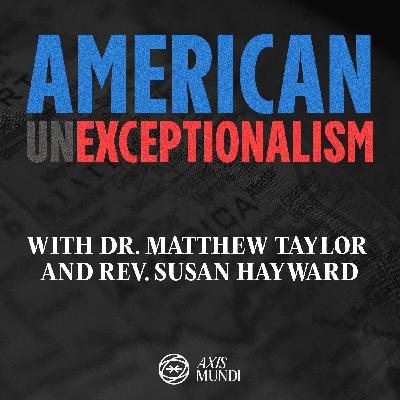American Unexceptionalism: Global Lessons on Fighting Religious Nationalism
Description
Religious Nationalism is Global - So is the Resistance.
What can we Americans learn from others around the world about how to protect democracy when the stakes are high? Can we learn how to challenge forms of religious nationalism and religious supremacy? What can we adopt from Buddhists in Sri Lanka or Muslims in Turkey, or Christians in South Korea who have faced similar kinds of forms of religious nationalism in in their own context and sought to deflate their power?
That’s the purpose for this series. Across 10 episodes, we travel around the world to places where there are similar battles afoot, where exclusionary movements of religious nationalism are driving democratic backslid. We’ll be speaking with people of faith from a variety of faiths and traditions. We’ll be speaking with scholars and activists to understand what is happening in these contexts, how it’s similar to or different from what’s happening in the USA, and we’re going to takeaway some practical lessons from those we speak to about what’s worked and what hasn’t in these efforts to protect democracy.
Dr. Matthew D. Taylor is the senior Christian scholar at the Institute for Islamic, Christian, and Jewish Studies in Baltimore, where he specializes in American Christianity, American Islam, Christian extremism, and religious politics. His book, The Violent Take It by Force: The Christian Movement that is Threatening Our Democracy (Broadleaf, 2024), tracks how a loose network of charismatic Christian leaders called the New Apostolic Reformation was a major instigating force for the January 6th Insurrection and is currently reshaping the culture of the religious right in the U.S. Taylor is also the creator of the audio docuseries Charismatic Revival Fury: The New Apostolic Reformation.
Rev. Susan Hayward: was until recently the lead on the US Institute of Peace’s efforts to understand religious dimensions of conflict and advance efforts engaging religious actors and organizations in peacebuilding. She has conducted political asylum and refugee work with the United Nations High Commissioner for Refugees and Advocates for Human Rights. Rev. Hayward studied Buddhism in Nepal and is an ordained minister in the United Church of Christ.






